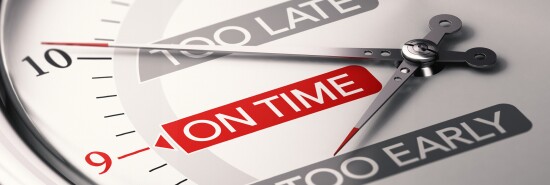
Time management, next year
Rob Long
I was asked a very rude question yesterday. A person I don’t know very well asked, “So, do you have any New Year’s resolutions planned?”
To be fair, this was during the small-talk portion of a meeting, when everyone is getting settled and we were waiting to begin in earnest. That’s when people talk about the weather or children, usually. But I found this particular question to be a little passive-aggressive because it implied that surely, someone like me has a long list of deficiencies and unmet goals to apply to the New Year.
To be honest, I don’t have any New Year’s resolutions planned, for two big reasons. One, because I’m perfect. And two, because I’m a little delusional, as No. 1 above proves.
What I should have said, instead of shrugging and looking baffled, was: “Next year, I will try to acquire a better awareness of time.” And the reason I should have said that is because the meeting started 15 minutes late because I thought I had time to stop and get the mail and grab a cup of coffee before I clicked on the Zoom link.
Spatial awareness, researchers tell us, is something that comes in handy. You suddenly get the ability to visually estimate what thing fits into another thing and what thing just won’t. We’ve all seen babies take a block that’s too big and try to fit it into the wrong shape on that toy that every baby has — the one that’s a house with the shapes cut out of it? — and then, at a certain point, a light goes off in the baby’s head, and the toy is done for.
Spacial awareness, I’ve got. What I need, though, is time awareness.
Years and years ago — and I know I’m dating myself — when I was maybe 7, I saw the James Bond movie Live and Let Die. And I still remember the jolt I felt when Roger Moore checks the time on his watch. It was the coolest thing I had ever seen: an LED digital watch. He pressed a button on a totally dark watch, and it lit up with the time.
All I wanted at that moment was a watch like that. If I had a digital watch, I thought to myself with the logic only a 7-year-old boy would use, I will never want anything else again. Eventually, I got one — they were everywhere in the 1970s — and I don’t think I ever recovered from it because a digital watch is nearly useless. It tells me what time it is right now. But I don’t really need to know what time it is right now. What I need to know is, how much time do I have left? In my head, the dial segments on an analog watch are like little pizza slices — they’re physical. I don’t know what it means to say that it’s 7:37 and I have 23 minutes left. I do know what it means to say the big hand is past the halfway line and I have a pizza slice and a bit to go.
I never really developed the skill — thanks, I think, to Live and Let Die — of successfully estimating how much time certain things are going to take. And that means my to-do lists are usually a bizarre jumble of tiny errands and giant tasks. Sunday: get laundry, sign tax stuff, begin novel, get outdoor lightbulbs, do script rewrite. And it also means that I think I can do a million little errands before my Zoom call at 10:30. I try to shove a lot of stuff into a small slice of time, like a little baby trying to put the triangle block into the circle block for an hour and a half and then putting the triangle block in its mouth for the next hour and a half. In other words, I am not fully developed.
And that, I think, is what I’d like to address in the new year. I’d like to get better at estimating how long things are really going to take, get more realistic about what’s really going to happen in the next hour, get some outdoor lightbulbs, write my novel, do a script rewrite, and get to the meeting on time. I can probably do all of that between 9:37 and 10:23.
Wish me luck.
Rob Long is a television writer and producer and the co-founder of Ricochet.com.
